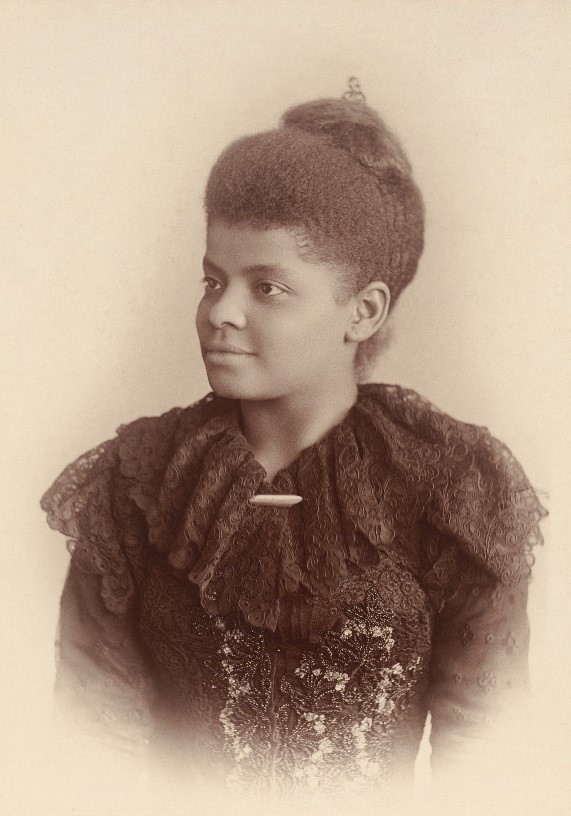By Dasha Matthews

Ida Bell Wells-Barnett, better known as Ida B. Wells was born on July 16, 1862 in Holly Springs, Mississippi. She is known to the world as a prominent African-American journalist, newspaper editor, suffragist, sociologist, feminist, and early leader of the Civil Rights Movement. She is also one of the 60 founders of the National Association of the Advancement of Colored People (NAACP) in 1909.
Wells was born a slave. Just a few months before sitting President Abraham Lincoln issued the Emancipation Proclamation, her parents James and Elizabeth Wells were both enslaved by an architect. The family stayed in what is now known as the “Boiling-Gatewood House”. Wells’ parents were both advocates for the rights of black people. Her father was educated at Rust College, where she also attended but was expelled for starting a dispute with the university president. In 1878, at the age of 16, Ms. Wells went to visit her grandmother in Mississippi Valley. While there, she learned that a yellow fever epidemic had struck her hometown and claimed the lives of her parents and her youngest brother. Left to care for five other siblings, Wells left school and took up a job as a teacher in a black elementary school. Along with the influence of her parents, her teaching job sparked interest in politics of race. In the segregated school system white teachers were paid $80 per month, while black teachers were paid $30 per month. Later on in the 1880’s Wells moved with her siblings to Memphis, Tennessee and continued teaching, but for higher wages.
In 1884 Wells filed a lawsuit against a train car company in Memphis for unfair treatment. She had been forcibly removed from her first class seat and moved to a “colored only” car, despite having a ticket. Wells won the lawsuit and was awarded $500, but the decision was then overturned by the Tennessee Supreme Court in 1887. As a result of this injustice Wells turned to journalism and began having articles published in black newspapers under the alias ‘Iola’. She eventually became the owner of the Memphis Free Speech and Headlight.
After the lynching of three of her friends in 1892, Wells turned her attention to white mob violence and became a well-known anti-lynching activist. She began investigative journalism and raised money to investigate lynchings and publish her results. She found very little basis for the frequent claim that black men were lynched due to sexual advancement towards white women. She recorded her finding in a pamphlet entitled “Southern Horrors: Lynch Laws in All Its Phases”.
Wells was involved in many different groups focused on the equality of African-Americans and women. She was a founder of the National Association of Colored Women’s Club, which dealt with issues around civil rights and women’s suffrage. In 1913, she founded what was possibly the first black women suffrage group, the Chicago’s Alpha Suffrage Club. She was also a part of the founding of the National Association of the Advancement of Colored People (NAACP), but later distanced herself from the group due to its “white and elite black leadership” along with the fact that she felt the group lacked action-based initiatives.
Ida B. Wells-Barnett died of kidney disease on March 25, 1931 just a few days after the passing of her husband Ferdinand Barnett. She left behind four children and quite a remarkable legacy. She will always be remembered in history for her fearless battles against discrimination and her influence during the civil rights movement.